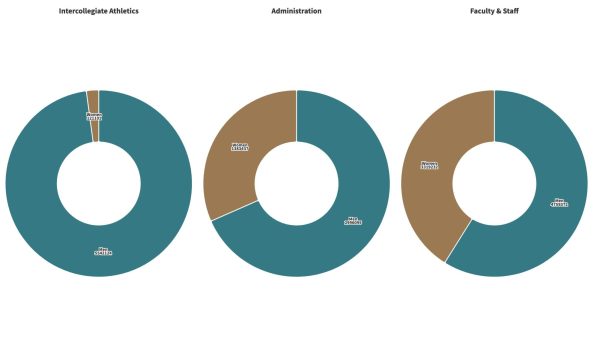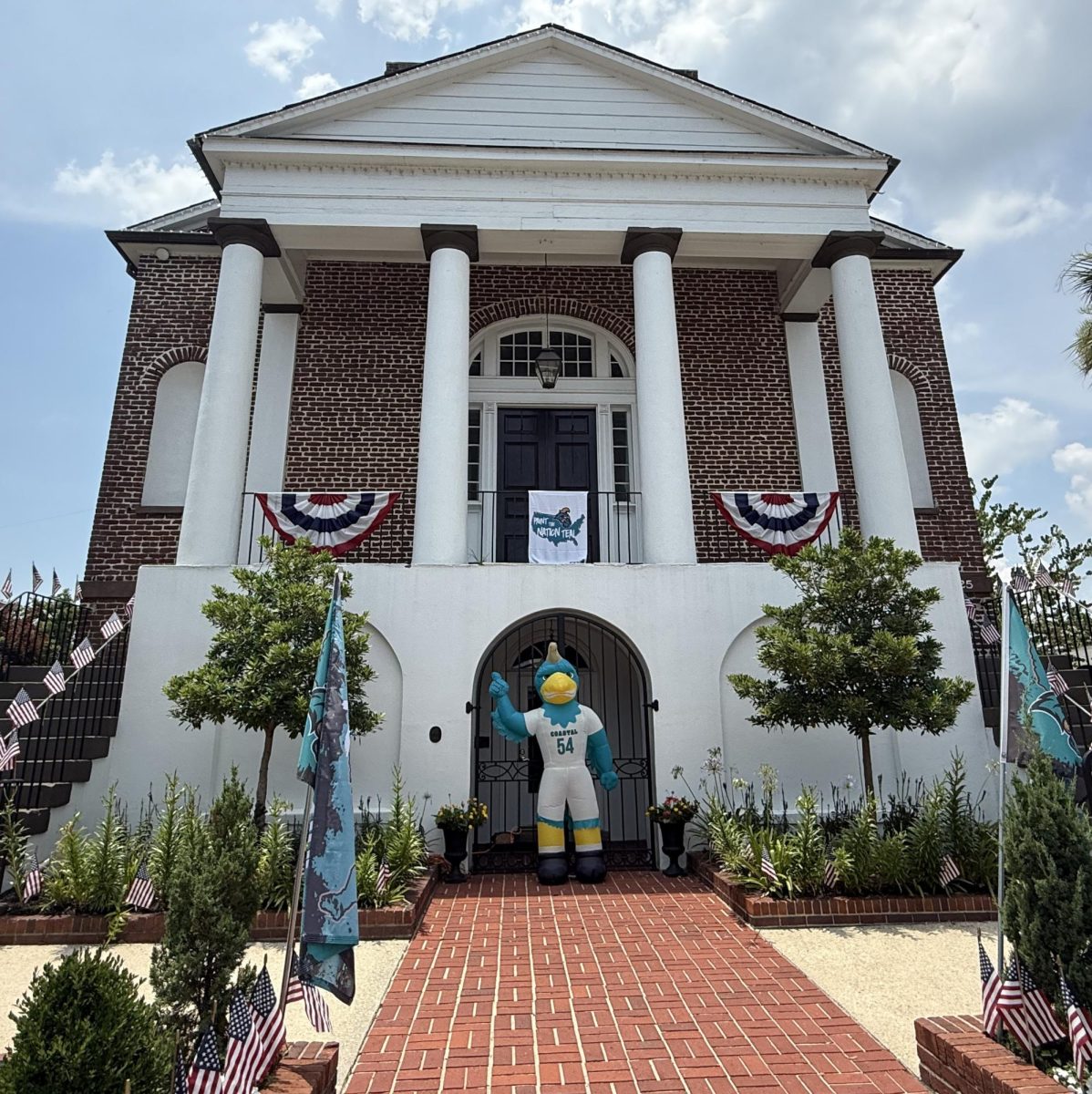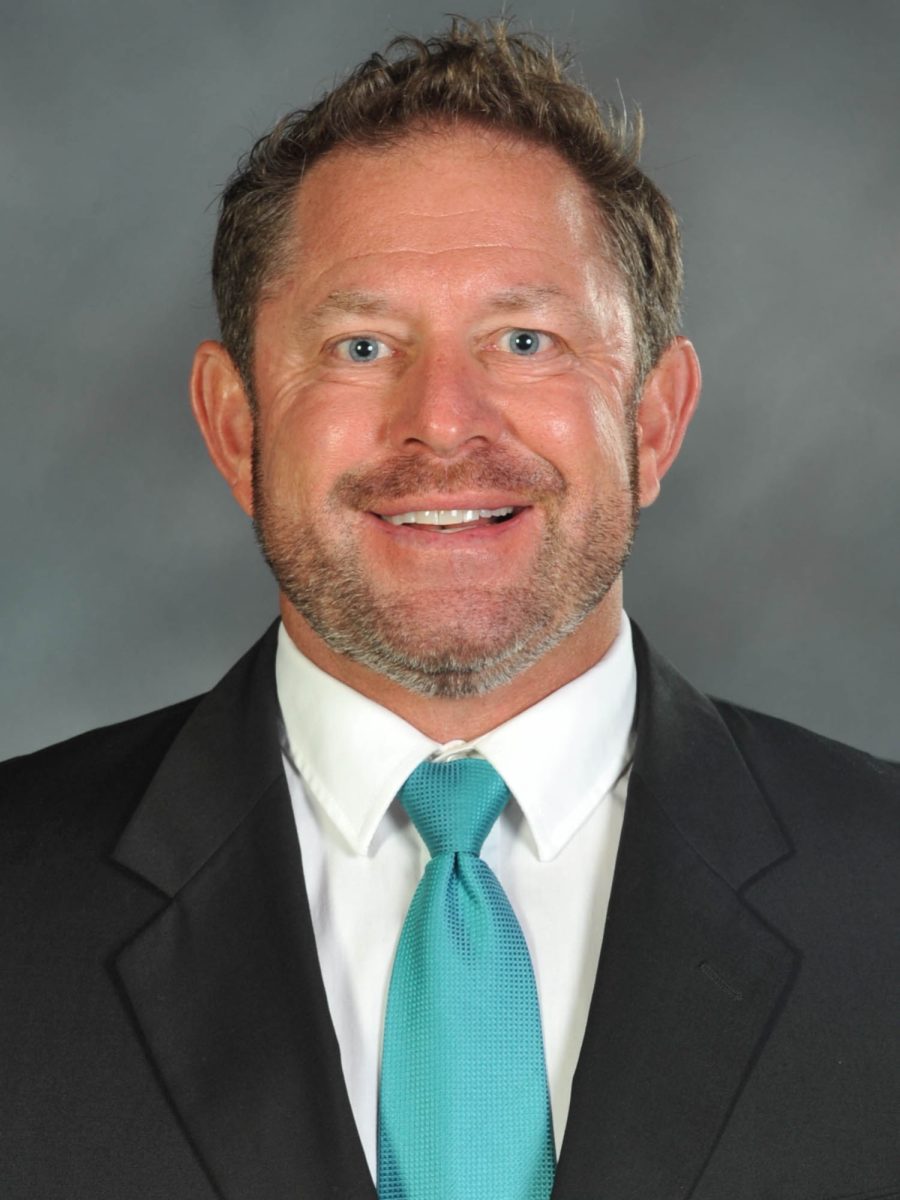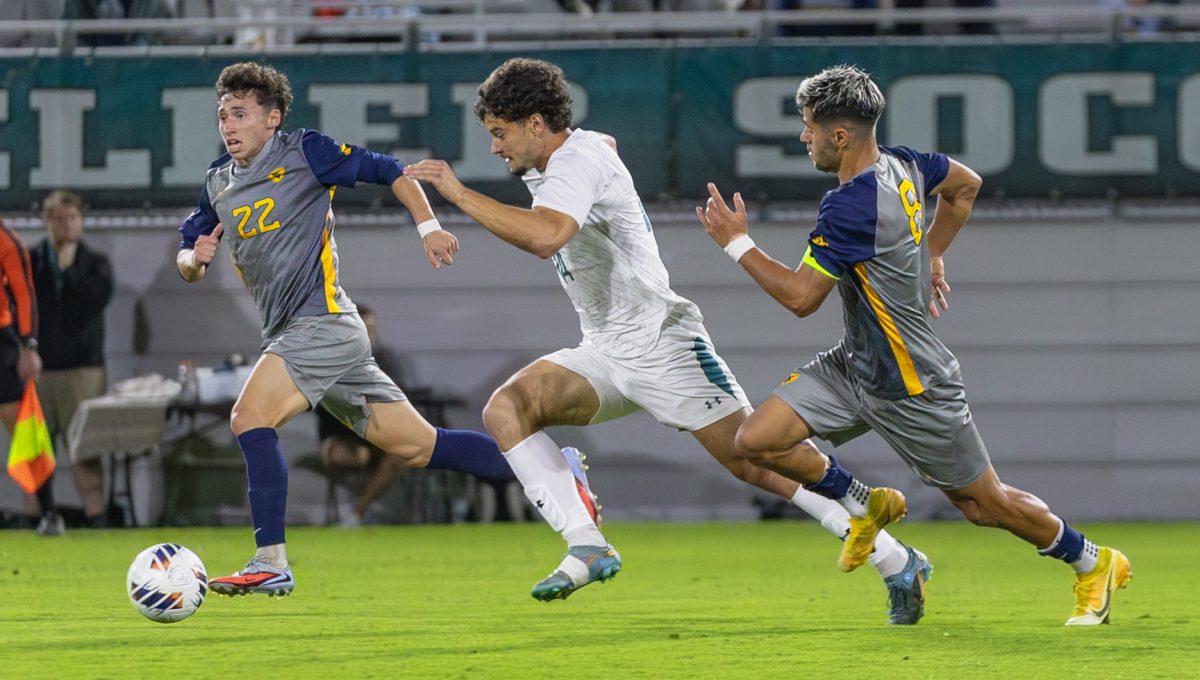The 100 highest paid employees at Coastal Carolina University make over $17 million total in wages.
Only 30% of this amount can be attributed to women’s salaries.
The South Carolina Freedom of Information Act requires all public institutions to list the salaries of those who earn more than $50,000 annually as public information. The South Carolina Department of Administration publishes these salaries on a state salary query, which lists the wages of all employees whose salaries fit the above parameters.
“The compensation information provided in this database is for employees in full-time equivalent positions in all state agencies, colleges and universities except those exempt from oversight by Admin’s Division of State Human Resources (DSHR),” the database reads.
According to their state salaries query, there are 33 women in the top 100 at CCU, compared to the 32 from 2023 as reported by The Chanticleer.

The average wage for men based on these statistics is $189,515, almost $37,000 more than women. Men account for $12.7 million out of $17 million, whereas women make up the remaining $5 million. In comparison to last year’s data, men’s total wages have increased slightly, and women’s have increased by $1 million– a small yet impactful improvement.
Additionally, the breakdown of salaries shows that the athletic department’s salaries total $5,663,225, administrators total $4,190,217 and faculty and staff earn a combined $8,078,604.
Within these categories, there is one woman in athletics, eight in administration and 24 in faculty.
Executive Director of the Chanticleer Athletic Foundation Kelly Moore, the only named woman in athletics within the top 100, makes $121,101. In 2023, The Chanticleer reported Moore was still the only woman but made approximately $6,000 less.
Last year, there were 16 women in administration and 15 in faculty. This data indicates a decrease in the number of women in administrative positions and an increase in faculty.
Vice President for Student Affairs Yvonne Hernandez Friedman is the only woman in the top 10, who rose from No. 24 in 2023.

Friedman has been at Coastal since August 2022 and has been in the field of higher education for 21 years now. She said it has taken a lot of time and effort to get to the position she is in today, in addition to help from mentors and sponsors.
“I always say ‘Mo money mo problems’ with increased pay, if you will, or increased compensation, comes greater responsibility,” she said. “I think for me in this last year, the more responsibility that comes with that, not only of amount of work, but just responsibility over different, over more lives, right?”
Making $232,000 a year, Hernandez Friedman said she feels very well compensated at Coastal.
Vice President for Human Resources and Operations Thomas Koczara said many of these differences in wages can be attributed to differences in experience and market. He said human resources (HR) at CCU determines salaries for classified jobs through a complex process.
“What we do in HR is we manage the classified positions, and we have a very robust process to do that,” Koczara said. “We take the market data, so we buy data from [College and Universities Professional Association (CUPA)], and then we compare the individual’s position description or job description to that market data to try to find the best match.”
He said the Provost’s Office sets the salaries for academic jobs, which are solely based on market data from other institutions, whereas the athletic department’s salaries are determined by a market dynamic rather than the University itself.
According to Philosophy Professor Reneé Smith, the demand for athletic coaches requires them to receive a higher salary to encourage them to keep their position rather than finding another job.
To put this in perspective, Coastal Carolina President Michael Benson makes a $254,000 yearly salary compared to football head coach Tim Beck’s $1.1 million.
Koczara explained the gap reflects the reality of CCU participating in DI sports.
“So, that’s nothing that we’re doing wrong or not managing well, that’s just the market dictating what the coaches at the various sports need to be paid,” Koczara said.
Sara Hottinger, the dean of HTC Honors College who currently serves as interim provost, makes $76,193 less than Former Provost Daniel Ennis. However, Hottinger said this difference exists due to differences in experience.
“[Ennis] had been in the provost position for four or five years. This is the first time I’ve been in that position,” she said.
Hottinger declined to comment about a wage gap existing at CCU but said a gap does exist in general and thinks students should be being taught how to negotiate and understand their salaries in the future.
“There are wage gaps across the board between men and women, and people of color and white people,” Hottinger said. “I think it’s important that people advocate for themselves.”
Smith, who has worked at Coastal for 22 years, specializes in the University Faculty Ombuds. She helps faculty members address work-related concerns and figure out a solution, giving her a greater insight on faculty relationships and struggles.
She said faculty are hired at the CUPA average, which is the average salary for a particular rank or discipline. Disciplines that are dominated by men, such as STEM fields, tend to have a higher pay grade than female-dominated fields.
Since the CUPA average has gone up, previous salaries no longer keep up with the market demands. This has caused new hires to make more than faculty who have worked longer at Coastal.
Through annual salary studies, the University can determine how much money has been compressed. In turn, Coastal then gives raises to faculty who are making less than the average.
Smith said when faculty members are tenured, they earn a raise. Going from an associate professor to a full-time professor requires a lot of scholarship and creative work in a discipline, because faculty must participate in further research and work in the community to earn this position. A lot of the time, this is while women are planning to start a family, which may cause women to miss out on having a tenure track job because they don’t have a terminal degree in their field.
“It could be that women might not want to take on that responsibility, and so they don’t get that extra pay bump,” Smith said.
She said since research and teaching are valued more, it is harder for women to achieve promotions sooner. A promotion to a full staff member comes with a 7% raise.
“I have heard faculty members say, ‘well I’m not going to do any service because I’m just going to do my research so I can get promoted,’ and the people who say that have been men,” Smith said.
Salaries may be skewed due to the fact regular faculty are paid on a nine-month basis, whereas administrators and deans get paid on an 11-month basis, according to Smith.
She said in hopes to alleviate disparities, hiring staff is working to hire more female faculty and faculty of color. As a whole, Smith believes CCU staff are underpaid for the work they do.
“Our salaries are very good, but that doesn’t mean they couldn’t be better,” she said.























